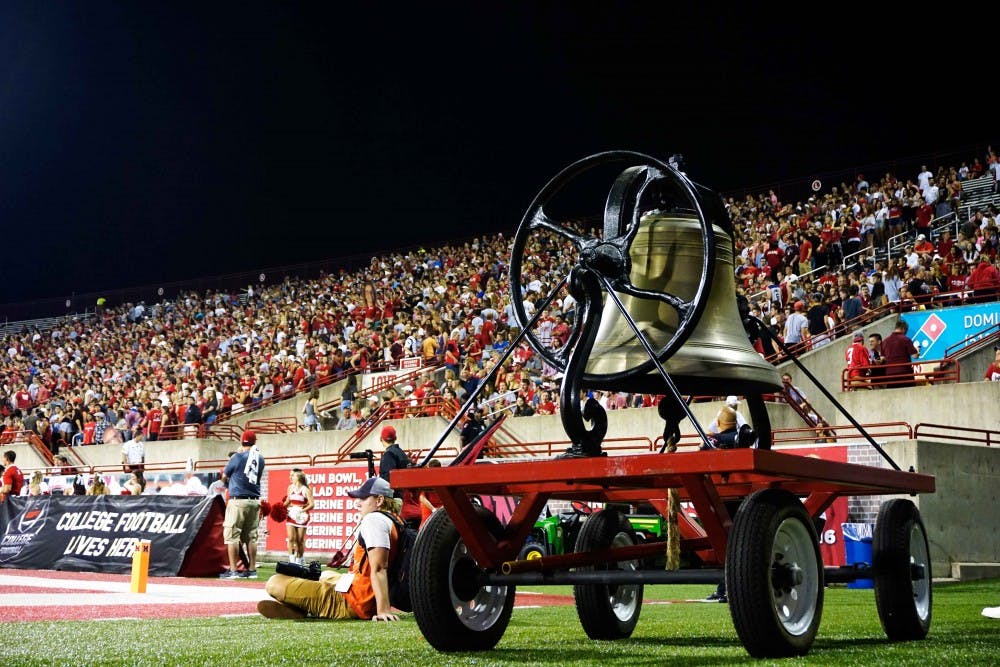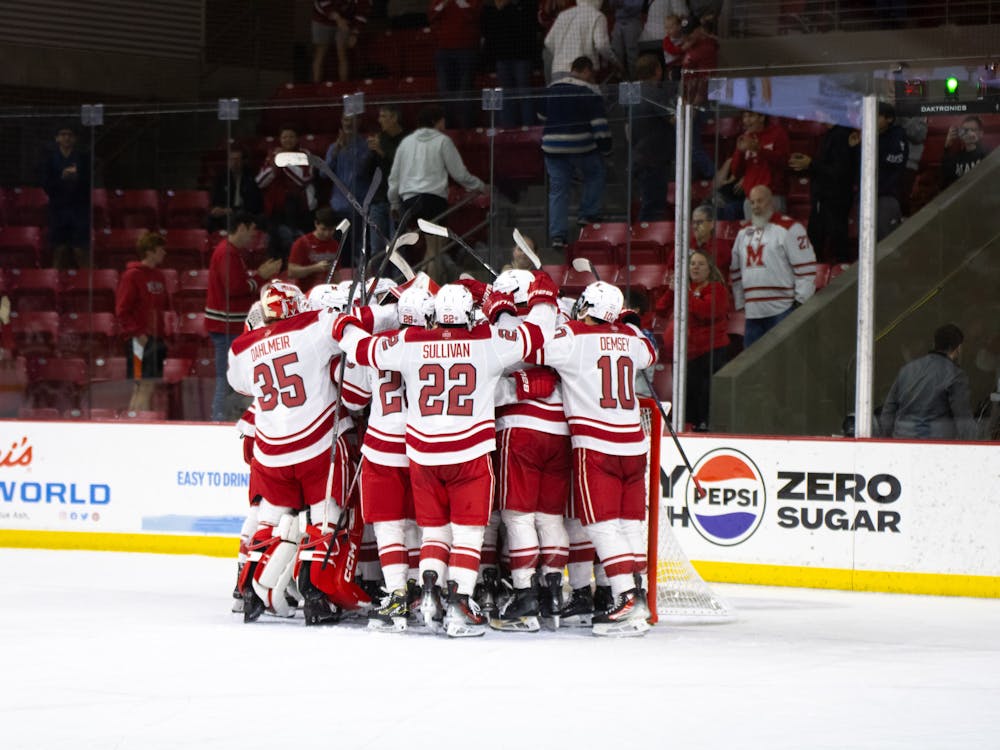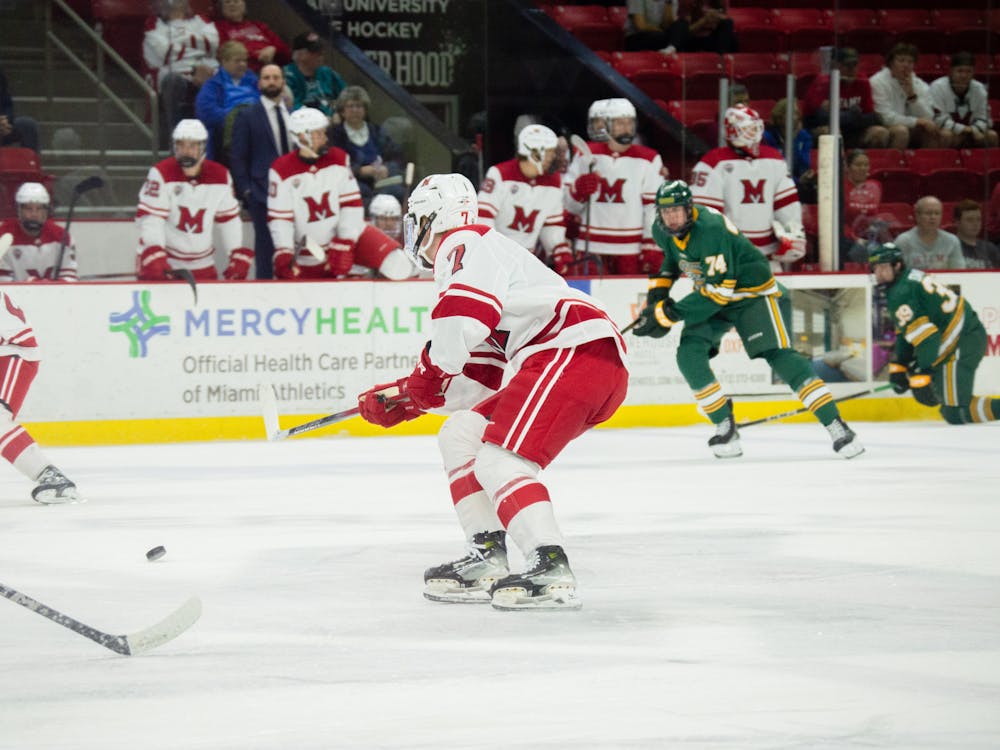Thousands of fans flocked to Oxford Saturday night for the 122th iteration of the Battle of the Bell, between Miami University and the University of Cincinnati. With a rambunctious, almost-capacity crowd at Yager Stadium, there was no love lost between the opposing teams and fan bases.
In what was a wildly contested game, the Bearcats prevailed for the twelfth straight time, scoring 15 unanswered points in the last three minutes to stun the RedHawks. MU head coach Chuck Martin called the game "the most difficult defeat I've had in 25 years, probably by a wide-margin."
Evenly matched competition seems to be a theme for this game as Miami holds a slight edge with an all-time record of 59-56-7 against the team from Clifton.
The oldest non-conference and one of the most underrated rivalries in college football dates back to 1888, when Miami and Cincinnati played to a 0-0 draw in Oxford. This was Miami's first ever football game. The rivalry game has been played every year except two, since 1909 and every year since 1945.
It became known as "the Battle of the Bell" in the 1890's after UC students stole Miami's victory bell from the original Harrison Hall after a Bearcats win. The bell was then given to the winning team each year until it went missing in the 1930's. It reappeared in 1946, but was retired. A replica of the original bell has been used since then.
Tragedy struck the rivalry in November of 1923. Field conditions were atrocious due to pouring rain. Players were forced to wear mud spikes to gain traction in the slippery conditions. Cincinnati's center Jimmy Nippert, received a deep gash on his face after being sliced with a cleat. The wound filled with mud, but Nippert finished the game and figured he'd be okay. He went home feeling fine, but his condition dramatically deteriorated due to lacking medical technologies and procedures. He died of blood poisoning four weeks later on Christmas day. This incident led to a deepening of the rivalry, with this game becoming the most infamous in series history.
In 1971, the game returned to Oxford for the first time since 1898. It had either been held at UC or at a neutral site before then. Home field advantage worked out well for Miami as they emerged victorious and proceeded to win eight of the next nine.
Both teams struggled overall throughout the '80s and '90s, but UC controlled the series, winning nine of 15 (with one tie) from 1986-2000.
The RedHawks' experienced a program resurgence in the early 2000s, led by blue-chip quarterback Ben Roethlisberger, and rattled off three straight wins from 2001 to 2003. This era is commonly viewed as the most successful in MU history. The team even managed to crack the top 10 national ranking.
After trading wins in 2004 and 2005, the Bearcats have won the last 12 games, devaluing the rivalry in the eyes of many fans.
Last year, WCPO's John Fay stated in his column, "you know a rivalry is no longer a rivalry when one of the teams wins 11 years in a row." This sentiment has been held by many people in recent years.
However, some fans can see the tides starting to shift. Miami freshman Aaron Autin is one of those fans.
Enjoy what you're reading?
Signup for our newsletter
"After a close game last year and then UC coming back to win in the final two minutes this year, it definitely shows that Miami is starting to be able to hang with UC and at least make it an interesting game again," Autin said.
With a rich tradition and two passionate fan bases, the the Battle of the Bell is always one of the most exciting games of the year. This rivalry is set to continue into the foreseeable future, as the two universities agreed to extend their football series through 2029.




